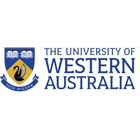Bachelor of Economics
Bachelor of Economics
Economics is at the forefront of public policy and issues such as economic growth, the stability of the economy, regulating financial institutions, resource taxation, financing education and income planning. Through this major you’ll learn how complex economic developments can be understood in terms of a set of simple but fundamental…
Categories
COURSE DESCRIPTION
Economics is at the forefront of public policy and issues such as economic growth, the stability of the economy, regulating financial institutions, resource taxation, financing education and income planning. Through this major you’ll learn how complex economic developments can be understood in terms of a set of simple but fundamental principles.
The Economics major is designed for students seeking to become professional economists and pursue careers as specialist economists in government and business, economic consultants, economic analysts and policy advisers.
Course Structure
Our undergraduate degrees offer you a broad range of options allowing you to combine subjects in a way that matches your career goals and personal interests.
Outcomes
Students will learn to:
Employ the framework of micro and macro economics to rationally analyse general economic problems and arrive at analytically sound conclusions
Interpret and undertake quantitative economic research
Identify and critically reflect on landmark events in Australia’s economic history and in the rise of the global economy
Undertake specific economic research that critically evaluates theoretical and/or applied issues in the area of economics
Communicate the results of economic research to fellow economists as well as to a range of potential stakeholders including other business professionals, policymakers in government and the public at large
Achieve the preceding objectives irrespective of whether they are working as an individual analyst or as a member of a team of professionals
Demonstrate an awareness of, and sensitivity to, the personal, social, ethnic and/or international backgrounds of other team members as well as stakeholders
Career Pathways
Employment prospects for economists are strong, and graduates can pursue careers as specialist economists in government and business, or as economic consultants, economic analysts and policy advisers. Graduates have found employment in the Australian and State Treasuries, the Australian Reserve Bank, as well as in economic consultancies and major companies.
Further Study
Students can pursue further studies at honours level or undertake a specialist master’s degree such as the Master of Economics. They can also choose to complete a generalist master’s degree such as the Master of Commerce or (after appropriate work experience) the Master of Business Administration.
REQUIREMENTS
Entry requirements may vary from country to country. Students are required to complete an international academic qualification equivalent to Australian High School (or equivalent).
English language requirements:
IELTS (academic): Overall minimum score of 6.5, no band lower than 6.0
TOEFL Internet-based TOEFL (iBT): an overall score of 82 or above with a minimum score of 22 in writing, 18 in reading, 20 in speaking and 20 in listening
Pearsons Test of English (PTE) (academic): An overall score of 64 with a minimum score of 59 in the speaking and writing sections, and no less than 54 in the other sections
EDUCATIONAL INSTITUTION
The University of Western Australia (UWA) is a proud member of the Group of Eight and is the only university in Western Australia to be ranked in the world top 100 universities (QS World University Rankings 2023).UWA’s main campus is located in Perth, Western Australia and is home to more than 23,000 students. Perth is Australia’s fourth-largest city with over two million people from a variety of cultures worldwide, a strong economy and vibrant lifestyle. Perth is one of the country’s most affordable cities, the closest major Australian city to Asia, and in the same time zone as most of Asia.

